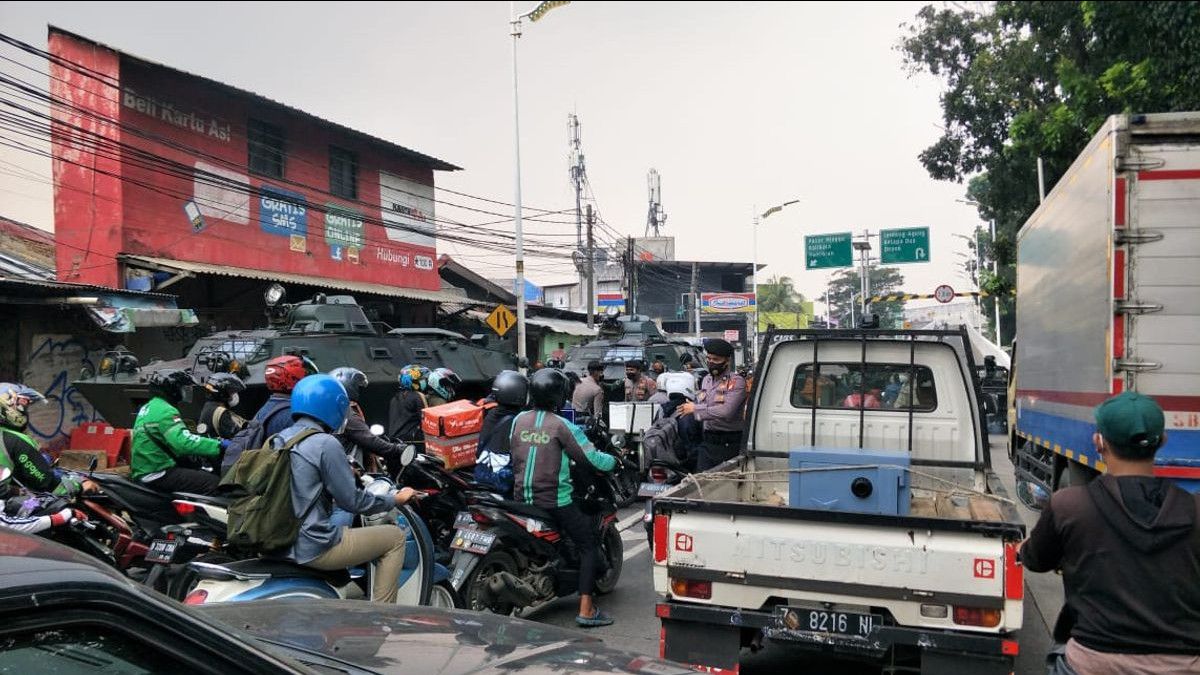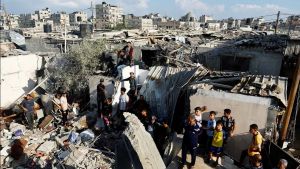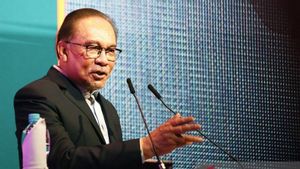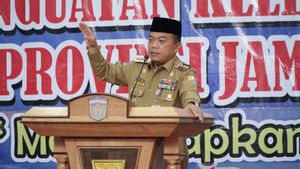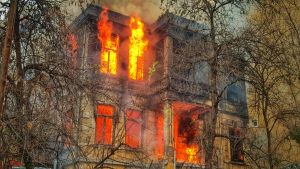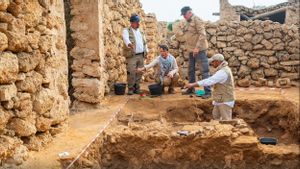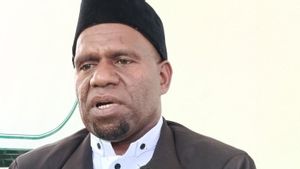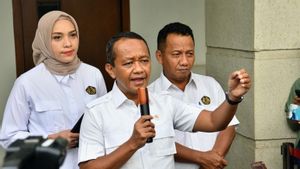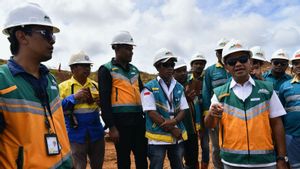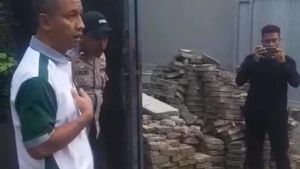JAKARTA - The mobility of residents in DKI Jakarta is still quite high amid the implementation of the Java-Bali Emergency Restrictions on Community Activities (PPKM). In fact, this policy aims to limit the mobility of citizens so that the spread of COVID-19 cases can be suppressed.
Even though many barriers have been put in place, in fact, the streets in the capital city still seem to be congested.
This has also been in the spotlight of the Minister of Health, Budi Gunadi Sadikin.
"I still see the streets in Jakarta, the emergency PPKM has been implemented, and there are still traffic jams," said Minister of Health Budi in a meeting with Commission IX of the DPR which was broadcast virtually, Monday, July 5.
Furious, the Minister of Health also reminded that the recent surge in COVID-19 cases is the result of uncontrolled mobility and people's behavior that is difficult to discipline.
"All this happened because mobility was not controlled. So this increase occurred because people's movements were difficult to ask for discipline," he said.
Emergency PPKM, said Budi, is actually to reduce the mobility of residents. With reduced mobility of citizens, it is hoped that the rate of spike in COVID-19 cases will also decrease.
"With the emergency PPKM on July 3-20, our goal is indeed to hamper mobility. To make mobility difficult so that we can reduce the pace of this pandemic," said Budi.
So, what makes DKI roads still jammed even though they are in the middle of an Emergency PPKM?
According to information, it turns out that there are still many offices that require their employees to work in the office even though there are already implementing regulations.
It is known, in this Emergency PPKM, only offices in essential and critical sectors are allowed to carry out activities in the office. Essential offices are those that carry out work in the financial and banking sectors, capital markets, payment systems, information and communication technology, non-COVID-19 quarantine handling hotels, as well as export orientation industries.
Meanwhile, critical sectors include energy, health, security, logistics and transportation, food, beverage and supporting industries, petrochemicals, cement, national vital objects, disaster management, national strategic projects, construction, basic utilities (such as electricity and water), and fulfillment industries. basic daily needs of the community.
For essential sectors, a maximum of 50 percent of Work from Office (WFO) staff is applied with health protocols, and for critical sectors a maximum of 100 percent of WFO staff is allowed with strict health protocols.
Central and Regional Governments Must Sweep OfficesDeputy Chairman of Commission II of the DPR RI, Junimart Girsang, asked the Central Government and Regional Governments to conduct office sweeps so that Emergency PPKM would run effectively.
Following the existence of the non-essential office sector which still asks employees to come to work from the office or Work From Office.
"Emergency PPKM has not run effectively according to the objectives of the PPKM itself. For this reason, the government, according to its orders, must conduct a sweep to every office according to the rules and impose sanctions," said Junimart, Monday, July 5.
Furthermore, Junimart explained, as of today, Monday, July 5, there is still congestion at a number of Emergency PPKM blocking points in the capital to several toll roads in the city of DKI Jakarta.
"From 8 am, cars piled up on city toll roads until 1 pm, even though the government has declared 80 to 100 percent WFH. Where are all of them from and where are they going? This means that blocking points must also be tightened at certain points," he explained. .
Therefore, the PDI-P politician urged the central and regional governments to conduct sweeps to offices so that Emergency PPKM could run effectively.
Including, involving the lurah or village head to participate directly in the field, carrying out order in the midst of the community.
"Regional heads to the sub-district and village levels must go to the field to check the compliance of the community, prohibit crowds, and carry out prokes," said Junimart
Many non-essential workers are forced to leave"We also found that in the field there were still several companies, the residents admitted that they were still being asked to work by their non-essential companies," said Head of Public Relations of the Polda Metro Jaya Kombes Yusri Yunus to reporters.
This statement will be followed up by the police. Yusri also asked residents to immediately report if there are companies outside the essential and critical sectors still asking their employees to enter the office.
"Immediately report to the Task Force if you find non-essential (workers) who are forced by their owners or leaders to work. Even though that is no longer allowed, this causes a lot of buildup," explained Yusri.
The police will also check on non-essential companies that are still working from the office. There are criminal sanctions prepared for violators.
Meanwhile, Pangdam Jaya Maj. Gen. Mulyo Aji said that over 80 percent in Jakarta caused traffic jams yesterday. A number of workers were turned away. However, Mulyo Aji said that many non-essential workers were afraid of being laid off.
DKI Governor Closes 59 OfficesThe DKI Jakarta Provincial Government has investigated dozens of essential and non-essential companies to monitor compliance with Emergency PPKM regulations. As a result, 59 companies were penalized for closure for violating the emergency PPKM regulations.
"Today, inspections were carried out at 74 locations in Jakarta. Of the 74 examined, 59 (companies) were closed," said Anies.
Anies explained that these companies were closed because they violated the Emergency PPKM regulations regarding office capacity. Anies reminded that the DKI Provincial Government also has the authority to revoke permits.
Anies asked employees who work in non-essential companies not to be afraid to report if forced to work in the office during Emergency PPKM. He made sure to take firm action against companies that did not comply with applicable regulations
"We will take firm action against companies and institutions that do not implement the emergency PPKM policy," he said.
"We need to underline, this is for everyone's safety. Therefore, for the next 2 weeks we will take it seriously so that we can all immediately break the chain of transmission from COVID-19," Anies added.
The English, Chinese, Japanese, Arabic, and French versions are automatically generated by the AI. So there may still be inaccuracies in translating, please always see Indonesian as our main language. (system supported by DigitalSiber.id)
